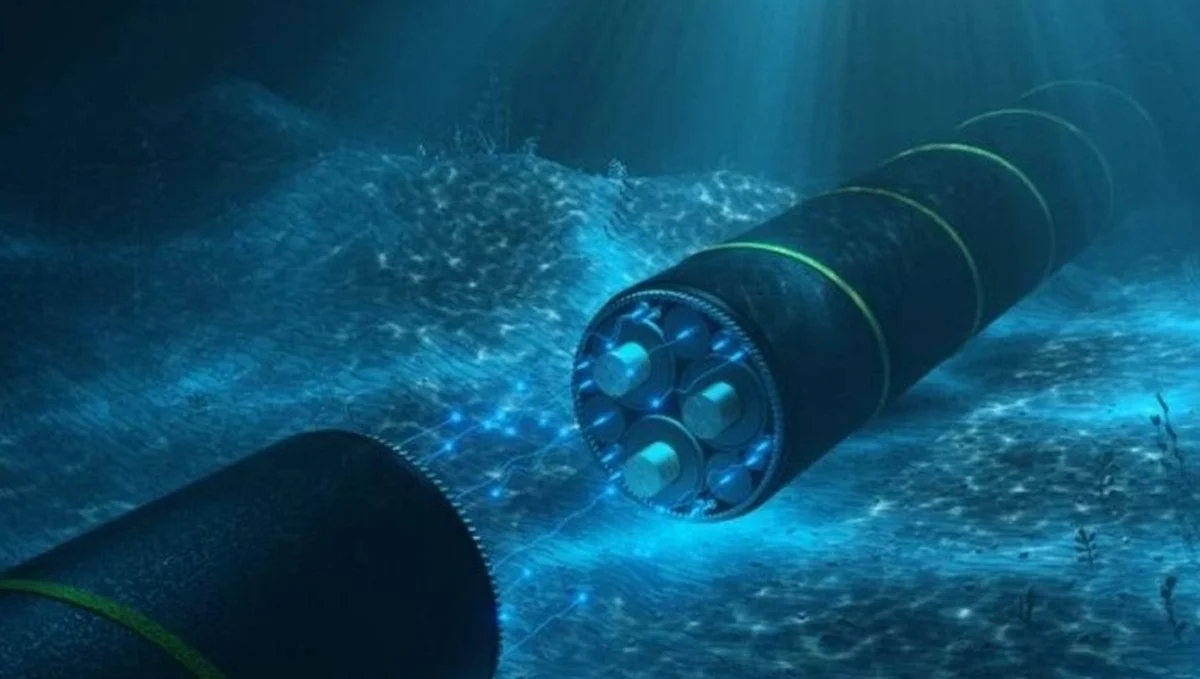lodigame 3 com
 lodigame 3 com
Bucs Make Roster Moves Prior To Giants GameDrama for DOGE bros: Ramaswamy caught on tape trashing MuskOTTAWA — The federal government has apologized for its role in the killing of sled dogs in Nunavik between the mid-1950s and the late 1960s. In Kangiqsujuaq, a Nunavik village in Northern Quebec, Crown-Indigenous Relations Minister Gary Anandasangaree also announced $45 million in compensation for Inuit in the region. "The dog slaughter occurred across Nunavik, spreading grief and devastation from the brutality. For this, words are not enough to express the sorrow and regret we feel," Anandasangaree said at a ceremony Saturday afternoon. "The federal government takes responsibility for its role in the dog slaughter. Throughout the 1950s and 1960s, federal officials knew that the dog slaughter was occurring and allowed it to continue, aware that Inuit way of life, health, and wellbeing depended on the dogs. "On behalf of the government of Canada and of all the Canadians, I am sorry. Please forgive us." The apology comes more than 14 years after former Quebec Superior Court Justice Jean-Jacques Croteau issued a report finding Quebec provincial police officers killed more than 1,000 dogs in Nunavik "without any consideration for their importance to Inuit families." Croteau found the federal government failed to intervene or condemn the actions and said the implementation of mandatory schooling and residential school was fundamental in the lead-up to the dog killings. In delivering the apology, Anandasangaree acknowledged the killings in the 1950s were done under federal authority. He also recognized the additional harm "caused by federal responses that did not fully acknowledge the role of the federal government, including the 2006 RCMP report that has been particularly painful for your communities." Receiving a federal apology has been a top priority for Makivvik, the organization which represents Inuit in Nunavik. It's something president Pita Aatami has pressed repeatedly through mechanism of the Inuit-Crown partnership committee -- a bilateral meeting which sees leaders from across Inuit Nunangat get face time with federal ministers three times a year. The Prime Minister attends one of those meetings annually. "I'm hoping for some of them that it will bring closure," Aatami told The Canadian Press ahead of the apology. "When I hear some of the interviews of the elders that had their dog slaughtered, the pain that they went through it was so much. Their livelihood was taken away from them. "They had no more means of going out on the land, to go hunt, to fish, or go get ice, or go to the tree line. All the things they did with their dogs, that was taken away." Aatami said the $45 million will go toward revitalizing the culture of dog team ownership in the region, and "all the things people need to raise dog teams." That includes training, food and fencing. "Historically, Inuit didn’t tie their dogs. That was one way of keeping them healthy. And it's only when the non-natives came, that they started having to tie their dogs. And that's when the dogs became more vicious, lazier. Not as good as before, kind of a thing." Aatami said some of the money will also go toward direct compensation, but how it will be disbursed has not yet been determined. "For me it's just a start because we also want funds for mental healing and so-forth," Aatami said, adding Makivvik had requested $75 million. The 2010 report from Croteau found Canada's liability for the deaths of the dogs arose, in part, because of the establishment of mandatory schooling and residential schools in Nunavik villages, and the failure to intervene sooner when the killing of sled dogs began in four initial villages. "The authorities chose confrontation over negotiation by using the services of the provincial police. As a result, any untied dog was killed without prior warning, while the statute relied upon allowed anyone to kill a stray dog without incurring liability," Croteau wrote. Croteau found Canada knew of the issue involving the killing of sled dogs as early as 1958, but still established more schools in other villages. Because attendance was mandatory, and because Inuit then never allowed themselves to be separated from their children, "Inuit families were in a hurry to settle in villages, bringing their dogs with them in order to ensure their livelihood and transportation," Croteau wrote. In Kangiqsujuaq specifically, where Canada's apology is being delivered, Croteau's report recalls how the federal government opened a school in 1960, then a nursing station a year later. By 1962, small prefabricated houses were built and Inuit settled in the village. Croteau determined that over a three-day period sometime between 1965 and 1967, more than 200 dogs were killed in Kangiqsujuaq alone, amounting to more than half of the canine population. Inuit there also reported some of their dogs died after being inoculated. The vaccines were requested by a federal administrator of the community, Croteau's report found, but nobody had warned Inuit of the risks. Croteau determined the federal government ought to have known that the influx of a large number of non-Inuit to the North would significantly disturb Inuit culture and their way of life. "Moreover, Canada, in its capacity as a fiduciary, should have asked its civil servants to solve the problem in the above-mentioned villages through negotiation instead of confrontation," Croteau wrote. In 2011, then-Quebec Premier Jean Charest formally apologized to Inuit in Nunavik for the province's role in the killings across the region, and settled with Makivvik for $3 million toward promoting and protecting Inuit language and culture. In 2019, the federal government apologized to Inuit in Nunavut for the RCMP's role in killing of sled dogs there. This report by The Canadian Press was first published Nov. 23, 2024. Nick Murray, The Canadian Press
lodigame 3 com
Bucs Make Roster Moves Prior To Giants GameDrama for DOGE bros: Ramaswamy caught on tape trashing MuskOTTAWA — The federal government has apologized for its role in the killing of sled dogs in Nunavik between the mid-1950s and the late 1960s. In Kangiqsujuaq, a Nunavik village in Northern Quebec, Crown-Indigenous Relations Minister Gary Anandasangaree also announced $45 million in compensation for Inuit in the region. "The dog slaughter occurred across Nunavik, spreading grief and devastation from the brutality. For this, words are not enough to express the sorrow and regret we feel," Anandasangaree said at a ceremony Saturday afternoon. "The federal government takes responsibility for its role in the dog slaughter. Throughout the 1950s and 1960s, federal officials knew that the dog slaughter was occurring and allowed it to continue, aware that Inuit way of life, health, and wellbeing depended on the dogs. "On behalf of the government of Canada and of all the Canadians, I am sorry. Please forgive us." The apology comes more than 14 years after former Quebec Superior Court Justice Jean-Jacques Croteau issued a report finding Quebec provincial police officers killed more than 1,000 dogs in Nunavik "without any consideration for their importance to Inuit families." Croteau found the federal government failed to intervene or condemn the actions and said the implementation of mandatory schooling and residential school was fundamental in the lead-up to the dog killings. In delivering the apology, Anandasangaree acknowledged the killings in the 1950s were done under federal authority. He also recognized the additional harm "caused by federal responses that did not fully acknowledge the role of the federal government, including the 2006 RCMP report that has been particularly painful for your communities." Receiving a federal apology has been a top priority for Makivvik, the organization which represents Inuit in Nunavik. It's something president Pita Aatami has pressed repeatedly through mechanism of the Inuit-Crown partnership committee -- a bilateral meeting which sees leaders from across Inuit Nunangat get face time with federal ministers three times a year. The Prime Minister attends one of those meetings annually. "I'm hoping for some of them that it will bring closure," Aatami told The Canadian Press ahead of the apology. "When I hear some of the interviews of the elders that had their dog slaughtered, the pain that they went through it was so much. Their livelihood was taken away from them. "They had no more means of going out on the land, to go hunt, to fish, or go get ice, or go to the tree line. All the things they did with their dogs, that was taken away." Aatami said the $45 million will go toward revitalizing the culture of dog team ownership in the region, and "all the things people need to raise dog teams." That includes training, food and fencing. "Historically, Inuit didn’t tie their dogs. That was one way of keeping them healthy. And it's only when the non-natives came, that they started having to tie their dogs. And that's when the dogs became more vicious, lazier. Not as good as before, kind of a thing." Aatami said some of the money will also go toward direct compensation, but how it will be disbursed has not yet been determined. "For me it's just a start because we also want funds for mental healing and so-forth," Aatami said, adding Makivvik had requested $75 million. The 2010 report from Croteau found Canada's liability for the deaths of the dogs arose, in part, because of the establishment of mandatory schooling and residential schools in Nunavik villages, and the failure to intervene sooner when the killing of sled dogs began in four initial villages. "The authorities chose confrontation over negotiation by using the services of the provincial police. As a result, any untied dog was killed without prior warning, while the statute relied upon allowed anyone to kill a stray dog without incurring liability," Croteau wrote. Croteau found Canada knew of the issue involving the killing of sled dogs as early as 1958, but still established more schools in other villages. Because attendance was mandatory, and because Inuit then never allowed themselves to be separated from their children, "Inuit families were in a hurry to settle in villages, bringing their dogs with them in order to ensure their livelihood and transportation," Croteau wrote. In Kangiqsujuaq specifically, where Canada's apology is being delivered, Croteau's report recalls how the federal government opened a school in 1960, then a nursing station a year later. By 1962, small prefabricated houses were built and Inuit settled in the village. Croteau determined that over a three-day period sometime between 1965 and 1967, more than 200 dogs were killed in Kangiqsujuaq alone, amounting to more than half of the canine population. Inuit there also reported some of their dogs died after being inoculated. The vaccines were requested by a federal administrator of the community, Croteau's report found, but nobody had warned Inuit of the risks. Croteau determined the federal government ought to have known that the influx of a large number of non-Inuit to the North would significantly disturb Inuit culture and their way of life. "Moreover, Canada, in its capacity as a fiduciary, should have asked its civil servants to solve the problem in the above-mentioned villages through negotiation instead of confrontation," Croteau wrote. In 2011, then-Quebec Premier Jean Charest formally apologized to Inuit in Nunavik for the province's role in the killings across the region, and settled with Makivvik for $3 million toward promoting and protecting Inuit language and culture. In 2019, the federal government apologized to Inuit in Nunavut for the RCMP's role in killing of sled dogs there. This report by The Canadian Press was first published Nov. 23, 2024. Nick Murray, The Canadian Press
Final farewell
Hurricane Helene: The Young Adults Helping Communities Recover
Gorilla Technology Group Inc . GRRR shares are on the rise Monday after the company announced some strategic advancements in the AI infrastructure space. What To Know: Gorilla Technology has partnered with Edgecore Networks to launch self-branded AI GPUs, using Intel's Gaudi architecture and Edgecore's 800G Ethernet switches. “With the launch of our self-branded AI GPUs, Gorilla is not merely participating in the AI compute market; we believe we are redefining it by boldly addressing underserved regions and shaping the future of intelligent urban infrastructure,” said Jay Chandan , Chairman and CEO of Gorilla. Gorilla Technology stated its intention to target deployments of its AI GPUs across over 50 planned or proposed AI data centers by 2032, with further expansion anticipated in underserved markets by 2035. By offering integrated solutions under its own brand, Gorilla aims to simplify procurement and improve compatibility for city planners and officials. What Else: Northland Capital Markets maintained an Outperform rating on the stock and raised its price target from $9 to $13. GRRR Price Action: Gorilla Technology Group shares were up 18.9% at $7.82 at the time of writing, according to Benzinga Pro. Read Next: Six Flags-Cedar Fair Merger Unlocks $200 Million In Synergies, Analyst Sees Big Growth Potential © 2024 Benzinga.com. Benzinga does not provide investment advice. All rights reserved.
Greenwave technology CEO Danny Meeks buys $248,821 in stock
Comcast and T-Mobile Forecasts Sink Telecom Stocks. Here’s What’s Happening.Smith's career-high 205 yards rushing carries San Diego past Morehead State 37-14
NYT Strands today — hints, spangram and answers for game #265 (Saturday, November 23 2024)NoneSNP cut funding to public services while splurging extra £1.3bn on benefits payments
- Previous: lodi 219
- Next: lodigame 5 login register




